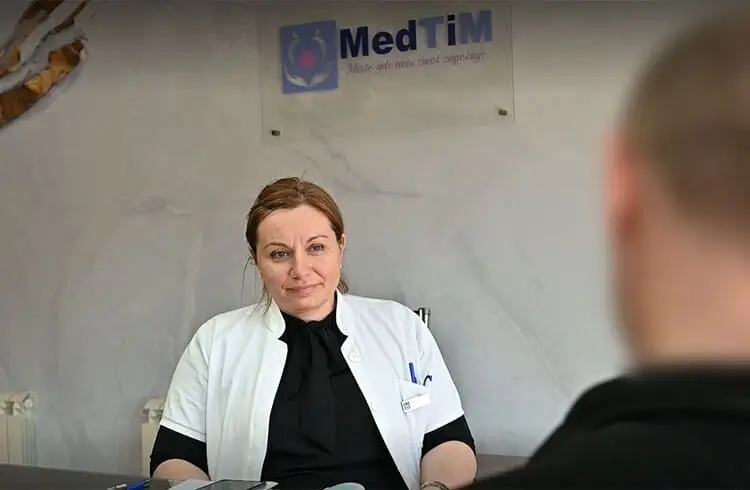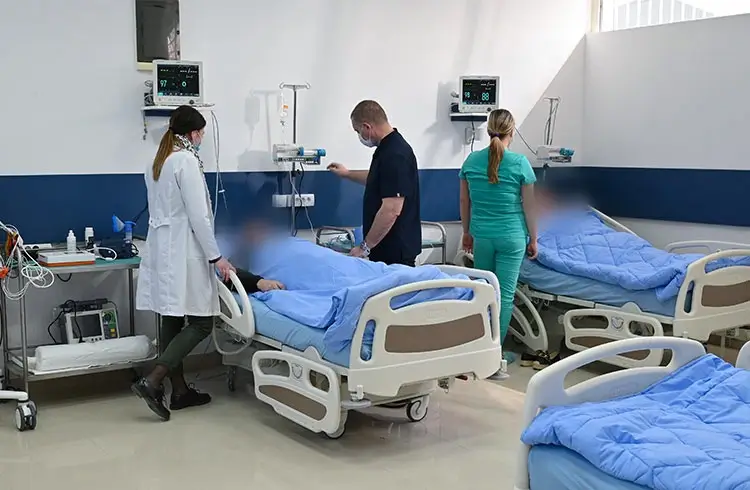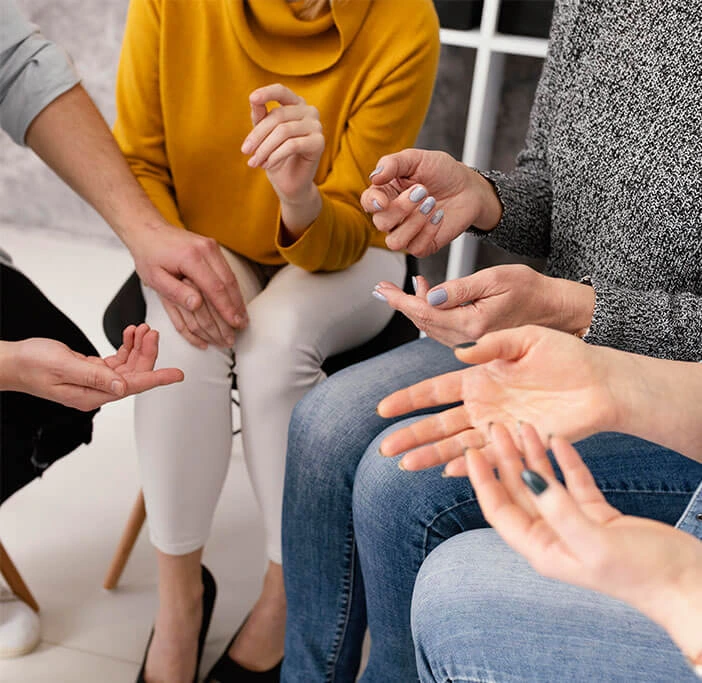Possibility of cost reimbursement through health insurance

Every patient who undergoes hospital treatment in our hospital does not complete the treatment by leaving the hospital, but continues the outpatient treatment for a period of one year.
Outpatient treatment includes coming for check-ups once a month, renewing the implant (depot injection), talking to a psychiatrist to correct or reduce pharmacotherapy and evaluating the previous period.
In addition to personal contact through follow-ups, each patient has psychological support after telephone treatment with a psychologist or special pedagogue who guided them through psychological procedures during treatment and began the psychotherapeutic process and education.
Post-treatment support is extremely important for the patient
Not only the patient but also their family has support after hospital treatment. The entire team of the hospital actively participates in providing services during the outpatient period.
Each patient and their family get abstinence rules at the end of treatment. The rules are not restrictions, but psychological support which, in addition to the implant, enables the patient and their family to go through the beginning of abstinence more easily. They represent taking on new patterns of behavior, and thus taking responsibility in case of non-compliance with the rules.
Outpatient treatment of addicts begins after the cessation of inpatient treatment and lasts for 12 months. It means coming to the psychiatrist’s follow-ups once a month, where the previous period is discussed, the pharmacotherapy is corrected or reduced, after which we get a general impression of the patient and family in coping with situations after treatment.

It is obligatory for patients to come for a follow-up with a family member in order to gain more information on the basis of which the psychiatrist determines the further course of pharmacotherapy and gives suggestions for continued functioning in the period to follow, i.e. until the next follow-up.
It is obligatory to monitor the implementation of the rules in rehabilitation that the patient and the family get at the end of the hospital treatment. Rehabilitation rules make it much easier to lunch the stable abstinence, because by implementing them, patients are protected from situations that can be potential triggers, first for closed mental crises, and then for relapse. If the patient has received an implant, he/she renews it in the next 30 days. If the patient does not feel stable and requires an earlier visit for a follow-up, he/she can schedule an emergency follow-up by phone.
In case of psychological crises or any disorientation in the outpatient treatment period, the patient is scheduled for an emergency follow-up in order to provide them with pharmacological and psychological assistance and prevent relapse.
Regular outpatient follow-ups are important for the complete cure of addicts, but they are not enough. It is important that the patient follows the doctor’s instructions, but also to see for themselves what things may cause problems in their life. It is important that after the treatment the patient has a completely different dynamics of the day, which includes a change of interests, social environment (socializing with people who do not have a problem with addiction), active involvement in sports activities, finding hobbies, continuing studies if started to avoid boredom which is often a relapse trigger.

Call us now +381668035073
